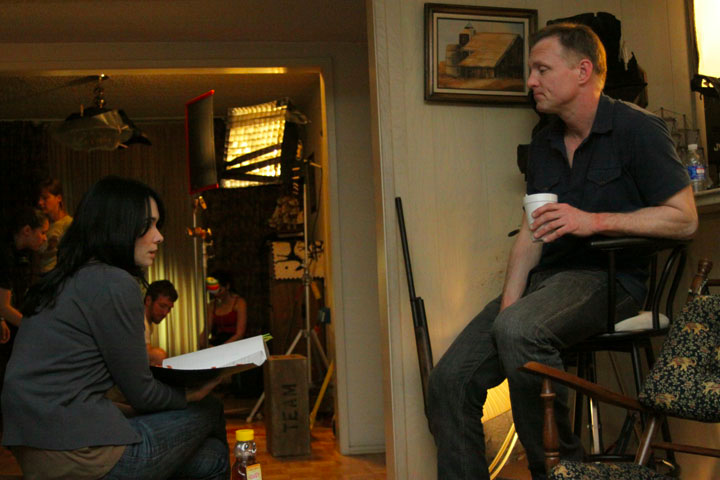For years we’ve heard about the plight of many a struggling actor or wanna-be filmmaker. They have a dream and ache to escape their reality to make it big. They usually do so against the odds and with minimal support. Maybe working two jobs or patching time to make it to auditions. And for those who fail to make the limelight, their tortured souls languish in a position that fails to satisfy their creative desires.
The good news for these artistic types is that the industry is rapidly changing and it’s not so one-sided anymore. Just as the internet has brought down barriers to entry for businesses in new markets, we’re seeing a leveling of the entertainment landscape as well. Not only in the way that media is made, but how it is consumed, where, and by whom.
This means that for independent actors and filmmakers who want to make their own break, they no longer have to rely on the backing of an agent from a mega Hollywood studio. Luke Sabis is an example of an inspiring Indie filmmaker who managed to attract attention for his recent film, Missing Child, through less conventional means. Here’s what aspiring entertainers can learn from his success.
Entertainment consumption patterns have changed
You only have to take a look at Netflix and its steadily increasing number of subscribers to realize, we don’t consume media in the way we used to. Netflix is convenient, and we no longer have to wait for a series to be launched slowly once per week, or a new movie to hit the video rental store (try to find one of those in your area now). Making use of the internet, Netflix is streamed on our laptops, smart televisions, smartphones, or tablets on and offline. Meaning we can consume its content from the comfort of our couch or when we’re on the go.
Even greater a disruptor to the traditional entertainment model is social media platform, YouTube. Almost 70 percent of young consumers confess that YouTube is a must-have service for them. Anyone with a smartphone can make a comedy sketch, series, or even independent film. Casting themselves as actor and director and making their work go viral on a bootstrap budget.
Luke explains: “We are living in a time when we have access to technology that allows us to do this.” It’s even better when you have formal training, rather than relying on the editor on your laptop or smartphone. Sabis himself has a degree in computer science, which gave him an advantage when it came to making Missing Child. He says, “It helps to be familiar with the different post-production areas such as editing, color-correction and sound design, to fill in the gaps when budget necessitates this, and to better work with the experts in these areas.”
Making an independent film is like being an entrepreneur
“Making a truly independent film is like being a small business owner. When budget is limited you have to have your hands in a lot of different areas in the production and post-production processes.” Independent filmmakers, struggling actors, aspiring producers and cameramen can now harness the technology at their fingertips to make their dream a success. With a low budget and willingness to look at your movie as a business, you’ll need to wear many hats, just like a business entrepreneur.
What’s more, while producing a Hollywood blockbuster may require a milion-dollar backer, they also require millions of viewers to achieve the necessary ROI. Independent films are like smaller businesses, with less budget, but also a need to reach fewer viewers. This also makes their content less restricting and gives filmmakers the freedom to truly create the piece of their dreams, without worrying about box office numbers.
Says Luke: “It’s a great time to be an Independent Filmmaker. Indie film is the best place today to introduce original material with a different point of view. While the large “tent pole” franchise movies need hundreds of millions of dollar to create, they also need that many viewers to make it sustainable. Indie film can work on a smaller scale but create a more intense, profound effect on the viewer, dealing with subjects and stories in a unique way.”
Thanks to changing consumption patterns and easier access to market, anyone can set up a YouTube channel and start broadcasting. That doesn’t mean anyone should, or that they will achieve success. Just as with any profitable business, you have to produce good content, or you’ll fail to attract viewers, likes and shares.
With appearances at the Cannes Film Festival for Ghost Tennant, and Missing Child screened at Idyllwild International Film Festival in California, Sabis is showing where business prowess meets creativity. Filmmakers looking to make their own break need to start realizing the power is in their hands.
Originally published at medium.com


